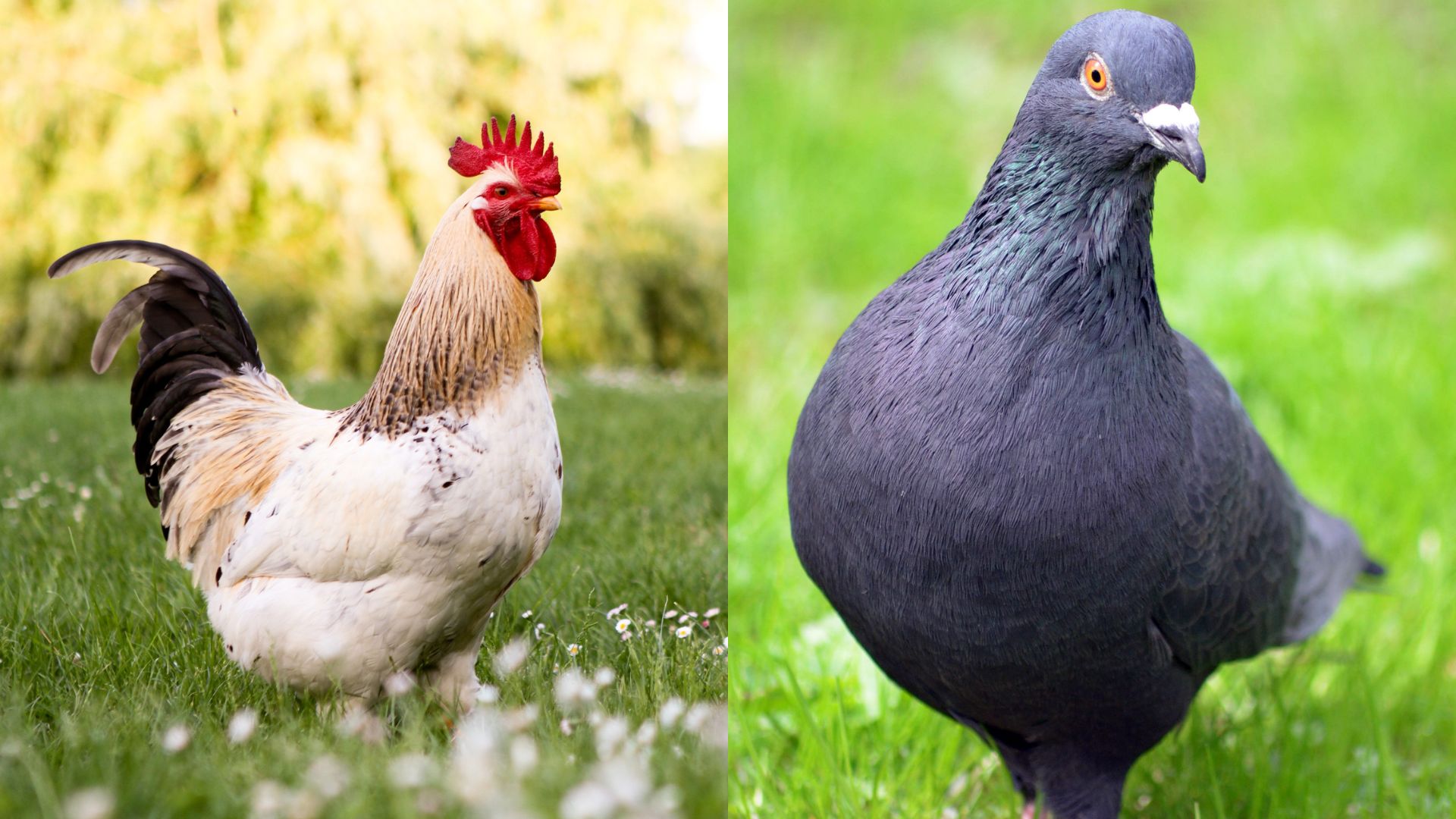Eggs. They come in all shapes, sizes, and colors. Some are fried, some are scrambled, and some are boiled. But when it comes to choosing the best eggs for your health, there’s a lot of debate. One question that often comes up is: pigeon egg vs chicken egg? Which is better?
It may sound like an odd comparison, but it turns out that pigeon eggs are a popular delicacy in many parts of the world. In this article, we’ll take a closer look at the differences between pigeon eggs and chicken eggs and explore the benefits and potential side effects of each. So, whether you’re a foodie, a health nut, or just someone with an adventurous palate, read on to learn more about these two unique types of eggs.
Nutritional Differences: Are Pigeon Eggs Worth It?

First, how do pigeon eggs compare to chicken eggs regarding nutrition? Well, according to some experts, pigeon eggs contain more protein and fewer calories per gram than chicken eggs. Pigeon eggs also contain a range of vitamins and minerals, including vitamin B12, iron, and selenium.
But before you rush out to stock up on pigeon eggs, let’s talk about the downsides. One potential side effect of eating pigeon eggs is the risk of infection with avian flu or other diseases. Plus, pigeon eggs can be harder to find and more expensive than chicken eggs. So, are the pigeon egg-eating benefits worth the potential risks and added costs? That’s up to you to decide!
Culinary Uses: Pigeon Eggs vs Chicken Eggs

Now, let’s talk about the culinary uses of pigeon eggs and chicken eggs. Pigeon eggs are a delicacy in many parts of the world, often eaten raw or lightly cooked as part of a special dish. In some cultures, pigeon eggs are thought to have aphrodisiac properties (but let’s not go there!). Meanwhile, chicken eggs are a versatile ingredient in both sweet and savory dishes and can be cooked in countless ways.
Chicken eggs have a wide variety of culinary uses. They can be boiled, fried, poached, or scrambled and used as a main dish or as an ingredient in many recipes. They can make omelets, frittatas, quiches, and egg sandwiches.
Eggs can also be a binding agent in meatballs, meatloaf, and other dishes. Baked goods such as cakes, cookies, and bread often require eggs as an ingredient. Eggs can also create sauces such as mayonnaise and hollandaise sauce. In short, chicken eggs are a staple ingredient in many dishes and essential to any cook’s repertoire.
While pigeon eggs may have a certain allure, chicken eggs are more widely available and can be used in various dishes.
So, unless you’re really into exotic foods, chicken eggs are probably your best bet.
Availability: Why Can’t I Find Pigeon Eggs?

One big difference between pigeon eggs and chicken eggs is availability. While chicken eggs are produced and consumed worldwide, pigeon eggs are a specialty item that can be harder to find. You’ll likely pay a premium price if you’re lucky enough to come across pigeon eggs. So, unless you’re a die-hard foodie or collector of rare foods, chicken eggs are probably a more practical choice.
Health Benefits: Are Pigeon Eggs a Superfood?

Regarding health benefits, pigeon eggs have a lot going for them. They’re high in protein, vitamins, and minerals and may even have anti-inflammatory and immune-boosting properties. Some experts even suggest that pigeon eggs could be the next superfood.
But before you start gorging on pigeon eggs, keep in mind that there are some potential pigeon egg side effects to consider. As we mentioned earlier, eating pigeon eggs is the risk of infection, and some people may be allergic to them. So, while pigeon eggs may have some health benefits, it’s important to consume them in moderation and caution.
Culinary Trends: Pigeon Eggs vs Chicken Eggs

Finally, let’s talk about culinary trends. While chicken eggs have been a mainstay in cuisines worldwide for centuries, pigeon eggs are starting to gain attention among foodies and experimental chefs. From trendy raw egg dishes to innovative egg-based desserts, pigeon eggs are making their mark on the culinary scene.
But don’t count chicken eggs out just yet. With new and innovative egg-based recipes being created all the time, chicken eggs remain a staple ingredient in the world’s kitchens.
Which Is Better?

Well, now that we’ve looked at the differences between pigeon eggs and chicken eggs, it’s time to answer the big question: which is better? The truth is, there’s no one-size-fits-all answer. It depends on your personal tastes, nutritional needs, and budget.
If you’re looking for a high-protein, nutrient-dense food, pigeon eggs might be a good choice. Just make sure you’re buying them from a reputable source and taking appropriate precautions to avoid potential health risks.
On the other hand, if you’re looking for an affordable, versatile ingredient that’s widely available, chicken eggs are probably the way to go. You can use them in various dishes, from omelets and quiches to baked goods and salads.
Ultimately, the choice between pigeon eggs and chicken eggs comes down to personal preference. Whether you’re a foodie looking to experiment with new ingredients or just someone who wants a nutritious and delicious breakfast, pigeon eggs and chicken eggs have pros and cons.
So, next time you’re at the grocery store or farmers’ market, take a moment to consider your options. Who knows? You might just discover a new favorite food!
Conclusion

In conclusion, pigeon eggs and chicken eggs have unique characteristics and benefits. While pigeon eggs are higher in protein and contain a range of vitamins and minerals, they can be harder to find and more expensive than chicken eggs. On the other hand, chicken eggs are a versatile and affordable ingredient that’s widely available. Whatever your preference, just remember to enjoy your eggs in moderation and with a healthy dose of humor – after all, they’re just eggs!
